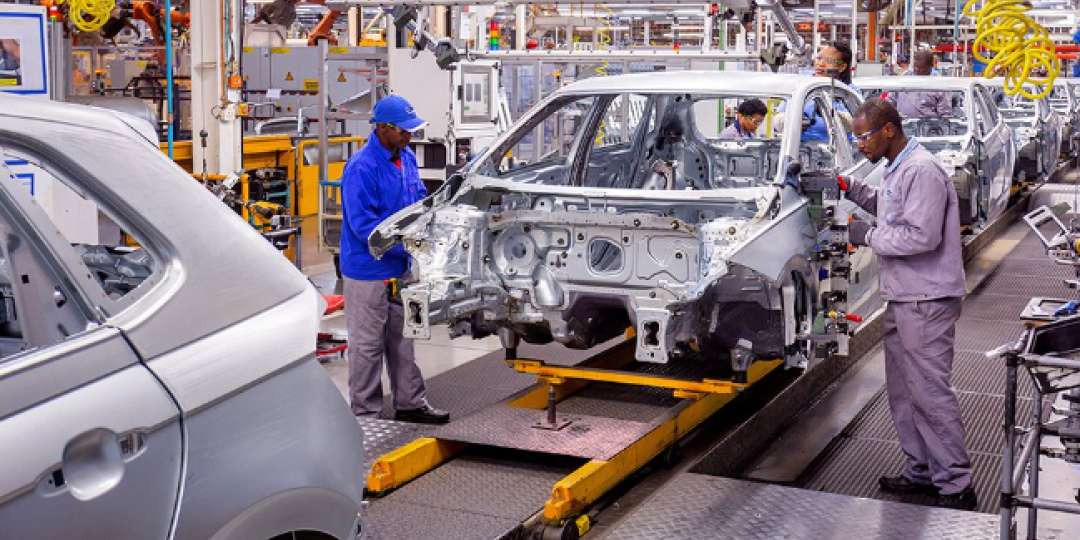South African-based vehicle manufacturers are planning to accelerate the multi-million-rand project to install more than 100 additional new energy vehicle (NEV) charging stations on major routes countrywide in 2025.
Mikel Mabasa, CEO of automotive business council Naamsa, the representative body of vehicle manufacturers, importers and distributors in South Africa, confirmed on Monday the charging station project had not been abandoned but was delayed by the need to finalise the process and ensure that all key stakeholders were brought on board.
“We are going to be accelerating it as we move into 2025,” he said.
“It moved relatively slower in 2024 than we had anticipated but we will definitely pick up the pace again this year.
“It cannot be abandoned. It’s a very important project for us because we really want to put up additional national charging infrastructure across all the national highways in the country.”
Mabasa said the project moved more slowly than anticipated last year because of, among other reasons, the many challenges the country has been facing, including economic challenges and the economic slowdown.
He said the project had also been delayed because of the importance of attracting black-owned businesses to express interest in the tender and the project.
Naamsa confirmed in August 2023 the adjudication process for the tender worth “hundreds of millions of rand” for the installation of the additional charging stations had been finalised and a recommendation on the preferred bidder had been made “to our principals”.
The council has been driving the project on behalf of locally based original equipment manufacturers (OEMs), vehicle importers and distributors.
Mabasa said in August 2023 that Naamsa had recommended the award of the tender to one company and also recommended that this company bring in at least three local black-owned companies for skills transfer, skills development and black economic empowerment (BEE) purposes to support the automotive industry’s transformation agenda.
Mabasa confirmed on Monday the nine bidders for the tender had been reduced to a shortlist of three or four bidders.
Moneyweb asked if the tenders submitted were still all valid and had not expired because of the project delay.
“We will obviously speak to all the shortlisted bidders so that they can update any information that may have materially changed since they submitted their original bids to us,” he said.
Less urgency?
Mabasa said the backtracking by some global automotive companies on halting the production of internal combustion engine (ICE) vehicles to produce only NEVs by a specific date – as well as suggestions in some European countries that the planned ban on the sale of ICE vehicles by 2035 in the European Union (EU) and the UK should be extended because of slower than anticipated sales of NEVs – has not had any impact on the award by Naamsa of the charging station tender.
He said Naamsa has always maintained that the adoption of NEVs in South Africa is not going to happen as fast as in Europe, the US, China and many other countries.
This is why, unlike in other markets, Naamsa has never spoken about the banning of ICE vehicles in South Africa, he said.
Mabasa said Naamsa knew the adoption of NEVs in South Africa was going to be organic and was also going to take a little bit longer than in China and many other countries.
“That is not going to have any impact on our plans. We still want to invest in infrastructure and that is why that project is still very important to us,” he said.
“Whether those countries decide to extend their bans on ICE or not, it will not necessarily impact South Africa directly or indirectly.
“We are still firmly on our trajectory in terms of our plans and we are comfortable that our plans are still relevant at this time,” he said.
Tax incentive
President Cyril Ramaphosa on 24 December 2024 enacted a tax amendment for NEVs.
This follows the government announcement during the budget statements in February 2024 that it was proposing to introduce an investment allowance to encourage the production of electric vehicles (EVs) in South Africa.
Minister of Finance Enoch Godongwana said during his budget speech in February 2024 that the investment allowance on new investments will commence on 1 March 2026.
“This will allow producers to claim 150% of qualifying investment spending on electric and hydrogen-powered vehicles in the first year,” he said.
Ramaphosa told the SA Auto Week conference in Cape Town in October that consideration must be given to incentives for manufacturers as well as tax rebates or subsidies for consumers to accelerate the uptake of EVs. Ramaphosa at the time did not provide any time scale for the implementation of these incentives or indicate how they would be funded.
Mabasa said Naamsa is “very energised and encouraged” by these steps that the government is taking.
“We think it is a step in the right direction because we have been very critical for the longest time and we have been pushing government very hard in the last three years to posture in this direction.
“It’s very encouraging to see that government has now woken up and has now smelt the coffee and is now taking the right steps towards where the world is moving,” he said.
Focus
Mabasa said Naamsa is hopeful this will accelerate the transformation to NEVs in South Africa and enable the country to continue to compete globally and strengthen its manufacturing capacity for NEVs, not only battery electric vehicles but also plug-in hybrids and traditional hybrids.
Mabasa said Naamsa has seen that the governments in other markets like China, the US, Germany and Japan support their industries in ensuring they are able to produce and compete strongly in the NEV space.
“The industry will definitely be able to get support from the government so it’s very good news. We are very very encouraged and happy that government is moving in the right direction.”
Mabasa said Naamsa has been in discussions with three Chinese companies about establishing a manufacturing presence in South Africa, which is in line with the objectives of the South African Automotive Masterplan published in 2018.
“We were very clear that we wanted to increase our production capability as a country … to 1.4 million [vehicles] by 2035 and know that it is mission impossible to only rely on the seven local manufacturers we currently have in South Africa to get to those numbers.
“We obviously want the local manufacturers to stay in the country, to increase their capacity and increase their production,” he added.
“But equally we want to attract new entrants into the market … particularly those who are going to be playing in the NEV space, to consider South Africa as an attractive investment destination and to invest and produce their vehicles in South Africa.
“We are working very hard to try and attract those investments into the country and we are going to continue to partner with those companies that are interested in coming to South Africa and investing.
“That will be a fantastic economic boost for job creation and, more importantly, for the reindustrialisation agenda that we want to see.
“We want to reindustrialise South Africa and this is an opportunity for us to accelerate that process,” he said. – moneyweb.co.za








